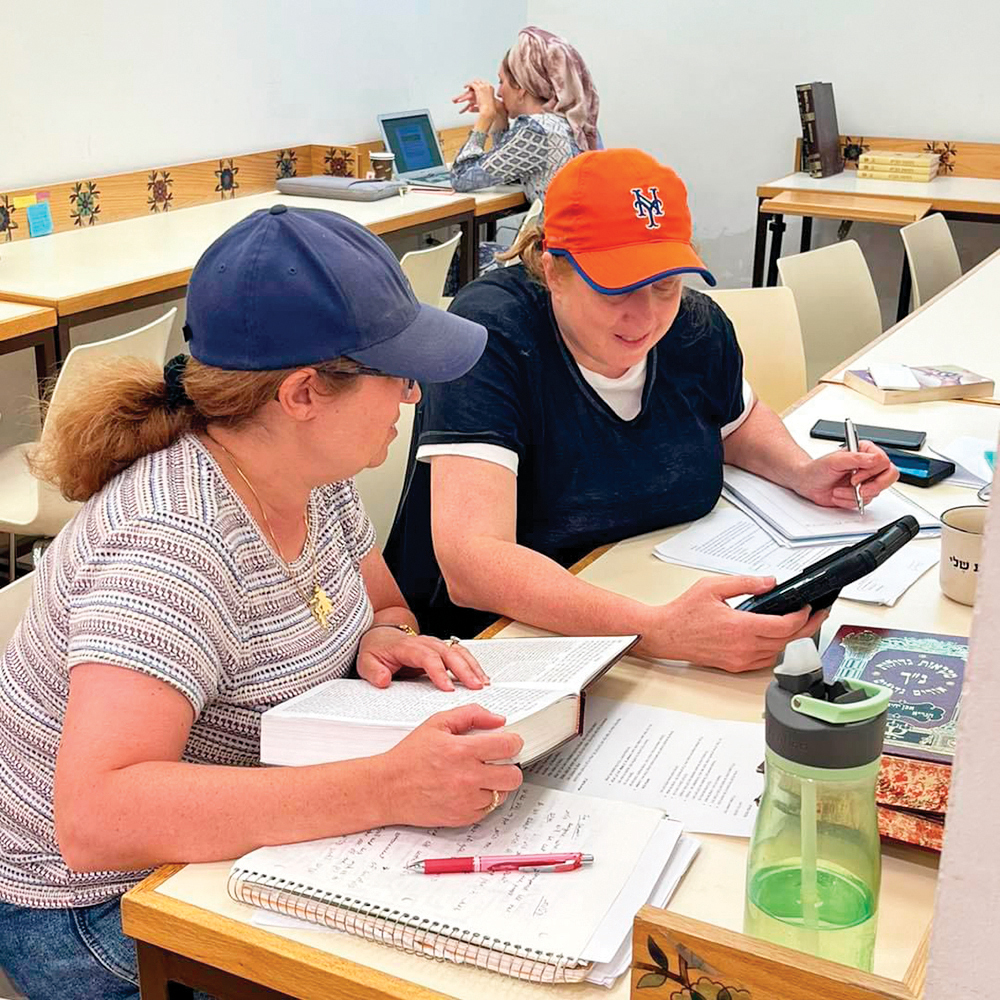
Rina, from Riverdale, attended Nishmat’s summer program in Jerusalem for three weeks several years ago. She recalls that because she had a strong Hebrew and Judaic background, she was placed in the more advanced classes. “The instructors were of the highest caliber,” she said. “They were passionate and energized by the material … and their excitement was contagious.” She remembers that one particular instructor would start speaking, effectively beginning the lesson, as soon as she started walking into the room. This well-known scholar would simply walk in, smiling, and speaking as if she was already in the middle of the lesson. The students would quickly sit down, while this teacher put down her purse and dived right in.
Rina relates that she most enjoyed the study time with partners at Nishmat. She was paired with women, usually with a similar level of learning skills. They would read the texts together, and try to figure out the meaning. “That was the best part,” she said. “I met so many wonderful people in the program. I became friendly with women of all ages, and from different walks of life. When it was over, I asked the director if she could please add just one more week; I was so sorry for it to end.”
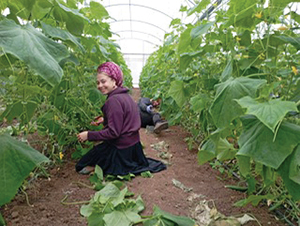
Atara Eis is the associate dean of international affairs at Nishmat. “I have the privilege of working closely with Nishmat’s founder, Rabbanit Henkin,” she explained. Eis said that everywhere they go together, someone stops Rabbanit Henkin and excitedly tells her, “I was in Nishmat’s summer program [however many] years ago. I loved it!”
When describing the Nishmat summer program, Eis said that it’s a meaningful program for a wide range of Jewish women. “The summer program is an amazing opportunity to spend one, two or three weeks in Jerusalem at Nishmat in a way that we often don’t give ourselves the permission to take off the time to do. But the women who do it say these are life-changing experiences.”
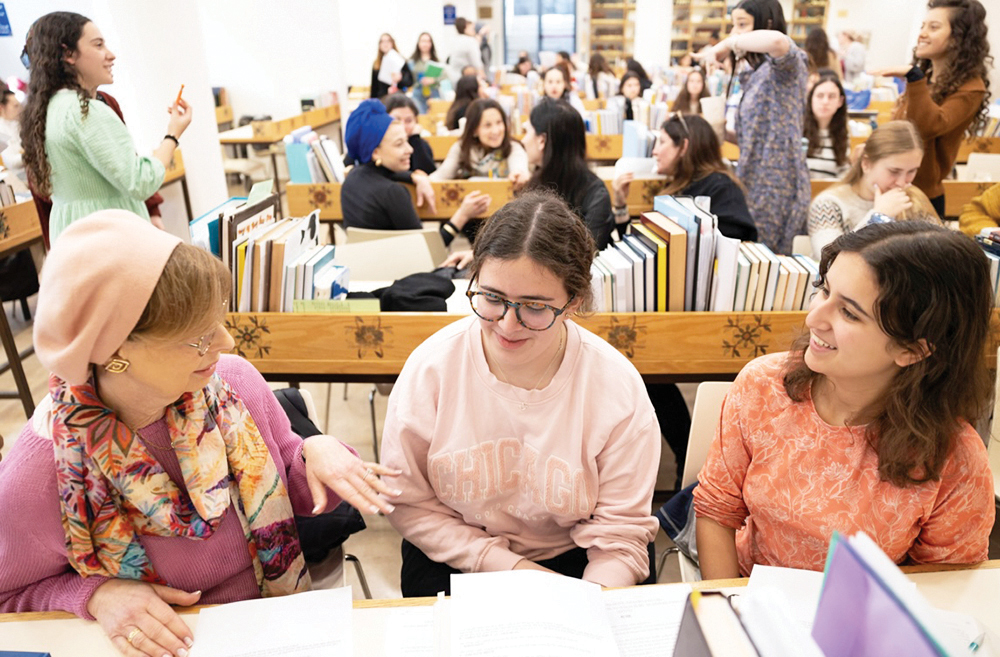
This past February, Nishmat ran a mission for women. “What resonated clearly,” said Eis, “was that while people want to learn Torah, there’s also a very strong need now to be with Am Yisrael and to be where they need help in Israel.”
In light of this need to support Israelis during the war, Nishmat’s classic summer program for 2024 has merged into a Torah/solidarity mission. The participants can both study Torah and embark on meaningful activities that are connected to the war, such as agricultural work or providing support to the wounded, displaced and bereaved. Eis explained that since at this point in time, what the country and people will be needing in the summer is unknowable, they are leaving large time slots open. In June, they will figure out how most appropriately to fill those slots with volunteer activities. Additionally, every morning will open with a guest speaker, to provide a range of up-close reflections on different aspects of this challenging time.
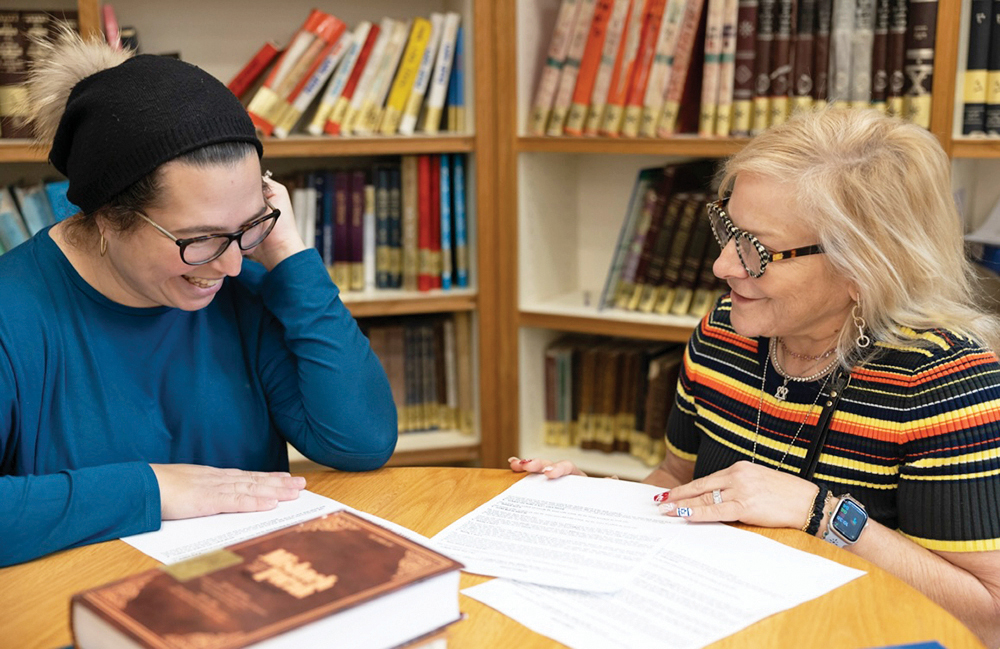
The goal of the program, said Eis, is to get as many women as possible stepping into learning in a way that works for them. The program is flexible: A person who can only commit to three days of learning is welcome to sign up. Additionally, Thursdays always feature independent topics from the rest of the week, so women with only one day available can join then and jump right in. Nishmat can provide a rich, customized schedule to fit each person’s preferences. This year, participants might choose to spend half a day learning and half a day volunteering. Nishmat specifically enabled smaller commitments for this summer while still offering their full-time experience in Tanach, Gemara, Halacha and Midrash.
Nishmat specializes in chavruta study for the main classes. “This means that you have encountered the text with your chavruta and learned through it yourself,” Eis said. “You are more invested in a text when you have gone through it yourself.” The teachers walk around the beit midrash (study hall) during the chavruta time to provide support when needed. When everyone then gathers as a class, the teachers pull together all the different aspects and questions that have arisen during the study time, in order to build a deeper level of understanding. It’s not a purely frontal class, but a much more engaging experience.
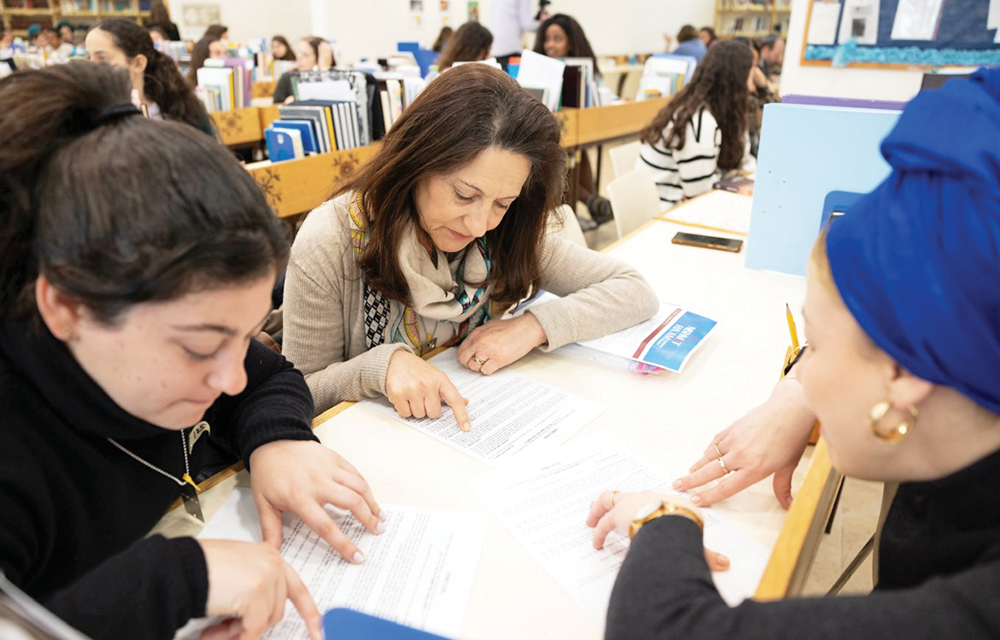
The topics of the courses are specifically chosen to be relevant to our lives today. The director of the summer program, Rabbanait Navit Tzaddik, will teach a class on the new responsa, discussing halachic scenarios that have come up from the current war. Among many other classes, Rabbanit Rimon will teach a class on David, Ahaz and Hizkiyahu, dealing with faith versus action; Rav David Sabbato will teach a class on Divine destiny in the comfort prophecies; and Rabbanit Henkin will teach a class on the book of Iyov (Job). There will be a class at the beginners’ level dealing with the first biblical marriages (Adam and Chava, Avraham and Sarah).
Nishmat provides housing for its students, if needed. Groups of friends who come together can share an apartment with a full kitchen and common area, while they each have their own bedrooms. Nishmat also provides housing for students staying alone.
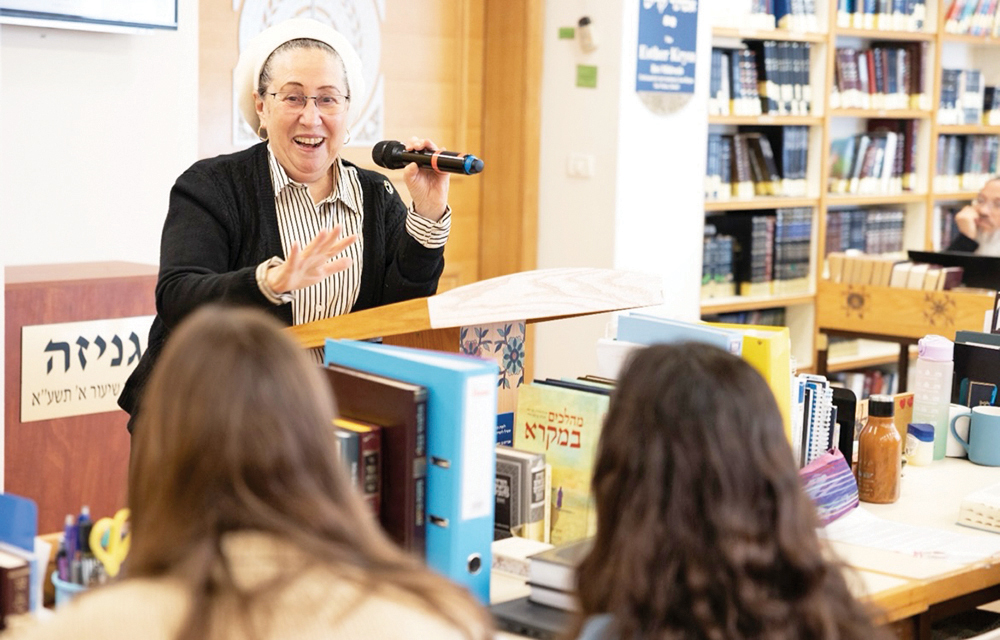
Eis concluded with the famous saying, “אם לא עכשיו, אימתי?”—‘If not now, when?’ For women who can take time off of work, can put their kids in camp, are empty-nesters, or could use a boost in their learning, our doors are open, waiting for people to come take a seat in our beit midrash.”
Dassi Lewis is a staff writer at The Jewish Link.












